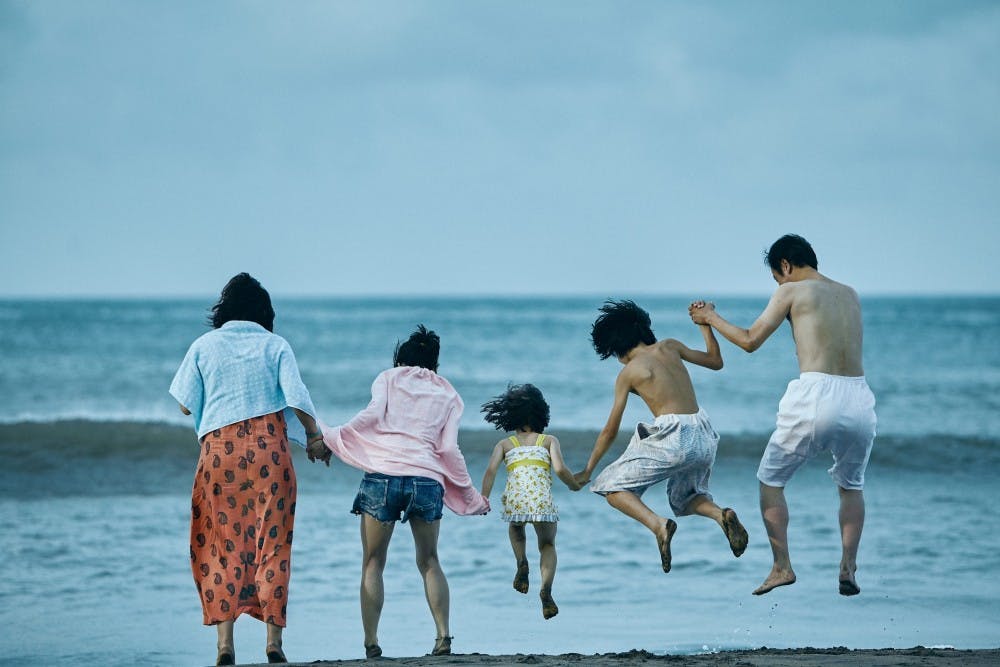Before I tell you anything else, I want to say that you should go see this movie. It’s a different experience than one I’ve ever had before. I’m telling everyone I know to go see this movie, especially my grandparents, who may be the only ones who will actually listen to me.
I love this movie but I was very apprehensive at first. I normally don’t like films or tv shows with subtitles. I know, it’s a bad bias I have and I miss out on some great things. I feel like I never get the full nuance with subtitles, and I miss a lot when I don’t get the intonation.
Also, the movie’s title sounds like it’s going to be a sad movie and I hardly ever purposely watch sad movies. I normally would rather watch something stupid or uplifting. Despite all of my incoming biases, I went in with an open mind, and was so glad I did so.
The movie asks one of life's greatest questions: what is a family? To try and answer that, you are introduced to the family the drives the story: the grandmother Hatsue Shibata (Kirin Kiki), the mother Nobuyo Shibata (Sakura Ando), the father Osamu Shibata (Lily Frankly), the aunt Aki Shibata (Mayu Matsuoka), and the son Shota Shibata (Kairi Jō).
They are poor—all five live in a tiny, cramped house. The father works construction, the mother in a hotel laundry. But to actually get by they need to shoplift, something that the movie portrays as not a solemn, desperate activity, but as a fun one that brings the family together.
One night after shoplifting, Shota and Osamu come across a young girl sitting out on a porch in the cold and decide to take her home. The act in some movies would come across as strong, but in this movie is so seamlessly worked–in, it almost feels natural.
They feed the girl, whose name is Juri (Miyu Sasaki), and decide to take her home the next morning. However, when they notice scars and she wets the bed, they suspect she has been abused. So the family decide that she’s better off staying with them.

That decision sets off a string of events which cause the family’s facade to unravel. What seems at first to be a normal family trying to get by turns out to be something completely different. The twist is one I did not see coming, and I think I have to go back and watch it a second and third time to fully understand it.
The movie was directed, written, and edited by Hirokazu Kore-eda, an absolute master filmmaker. Every frame, line, and visual is deliberate, and adds to the movie in some way, subtly hinting towards a character or plot line. It’s also a visually stunning film, with cinematography that underscores the mood. Kore-eda deliberately reveals a little bit more about the family in every scene of the movie and the viewer is drawn in even further.
The film breaks apart the assumption that your ‘family’ is the one that is related to you. It explores a phenomenon that many have found to be true: your real family is the one that you choose.







